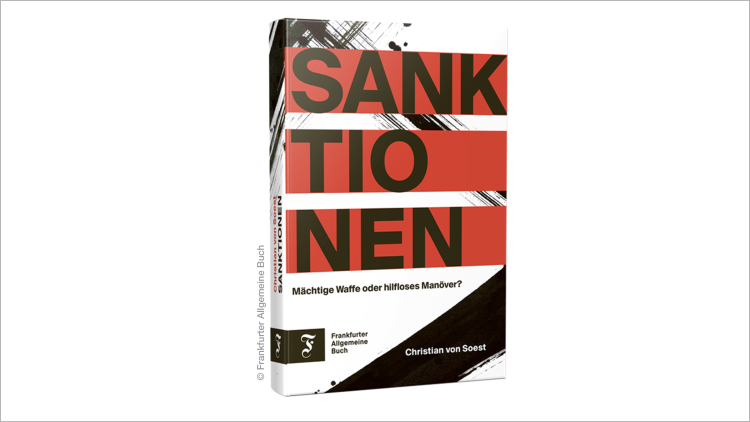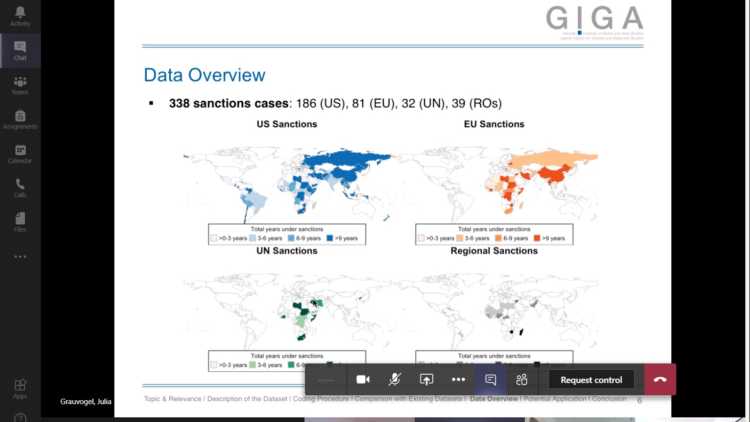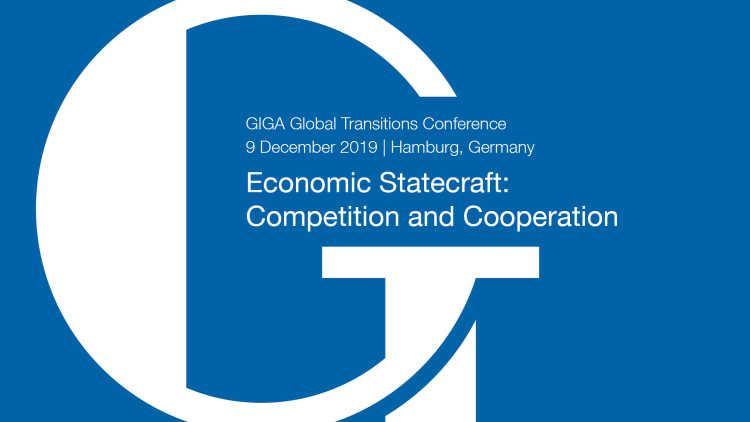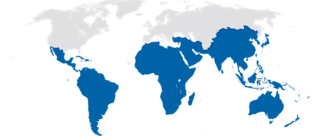- Startseite
- Forschung & Transfer
- Ausgewählte Themen und Länder
- Sanktionen in der internationalen Politik
Sanktionen in der internationalen Politik
Der Angriff Russlands auf die Ukraine im Jahr hat erneut die Frage nach der Wirksamkeit von Sanktionen aufgeworfen. Wirtschaftssanktionen sind ein beliebtes außenpolitisches Instrument, um internationalen Herausforderungen wie Konflikten, Menschenrechtsverletzungen oder Terrorismus zu begegnen.
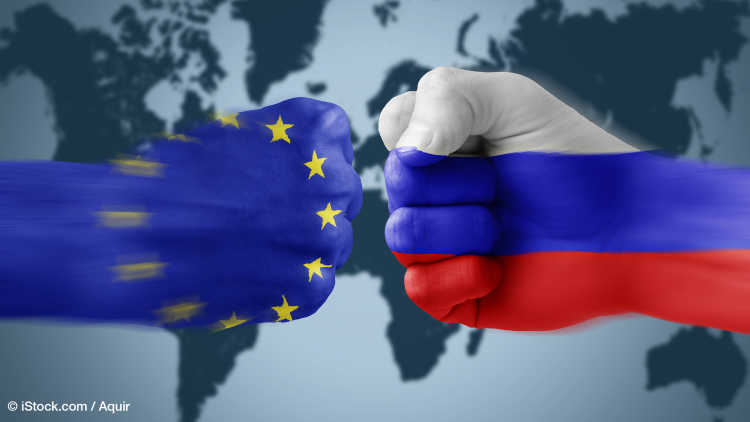
Expert:innen
Kontakt
Aktuelle Forschung
Länder und Regionen
- International Sanctions
- Foreign Policy Analysis
- Political Psychology
- Leadership Trait Analysis
- International Security
- Sub-Saharan Africa
- Middle East and North Africa (MENA)
- Lebanon
- Iran
-
Economic statecraft
-
Frieden und Konflikt
-
Sicherheitspolitik
-
Außenpolitik
-
Naher Osten
-
Naher Osten - Nordafrika (MENA)
-
Internationale Sanktionen
-
Persistenz und Wandel autoritärer Regime
-
Legitimation autoritärer Regime
-
Simbabwe
-
Burundi
- Internationale Sanktionen und Interventionen
- Autoritäre Regime
- Legitimation politischer Regime
- Außen-und Entwicklungspolitik
- Südliches Afrika und Ostafrika
- Südafrika
- Botswana
- Zambia
- Zimbabwe
- Kenia
Kurz notiert
Forschungsprojekte
Publikationen
Veranstaltungen
Medienbeiträge
Vorträge
Präsidentin (ad interim)
Prof. Dr. Sabine Kurtenbach leitet das GIGA als Präsidentin (ad interim).








